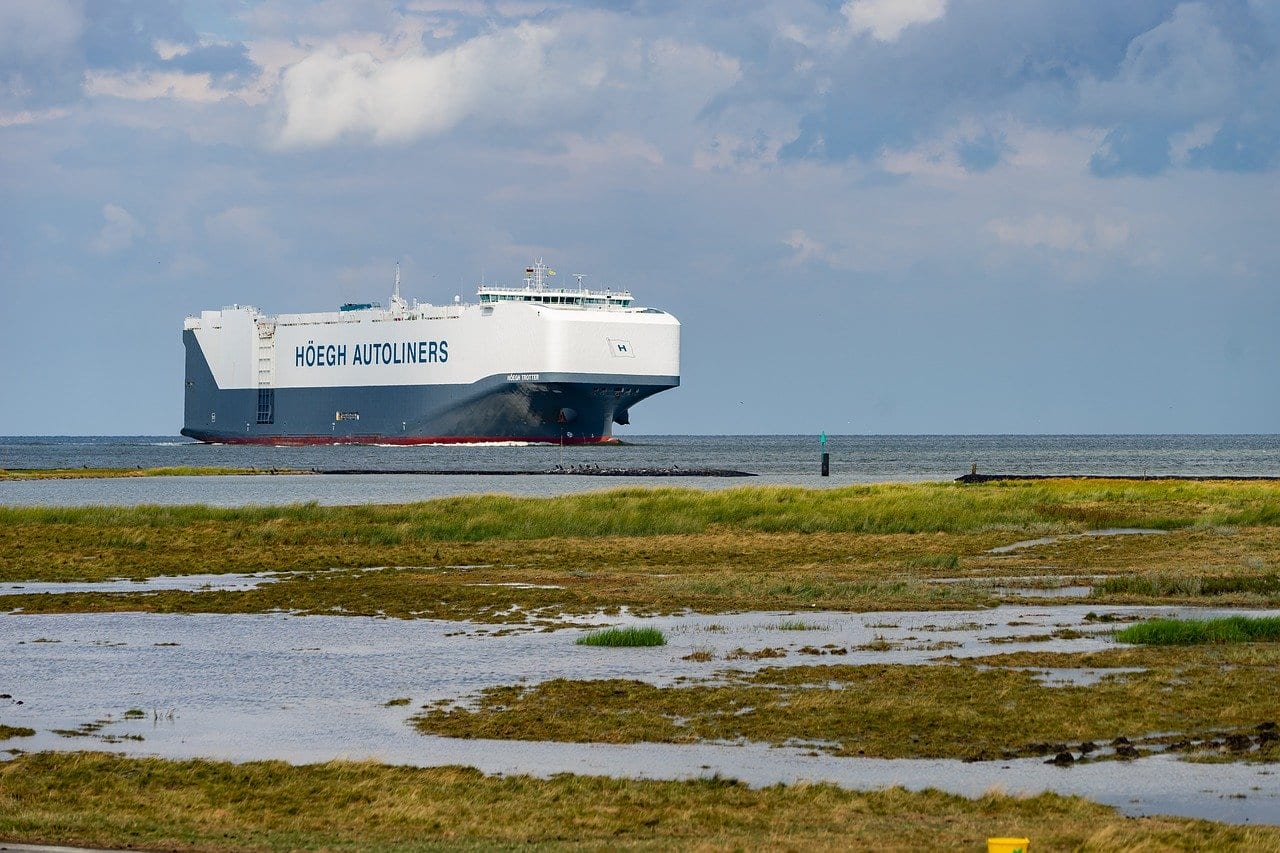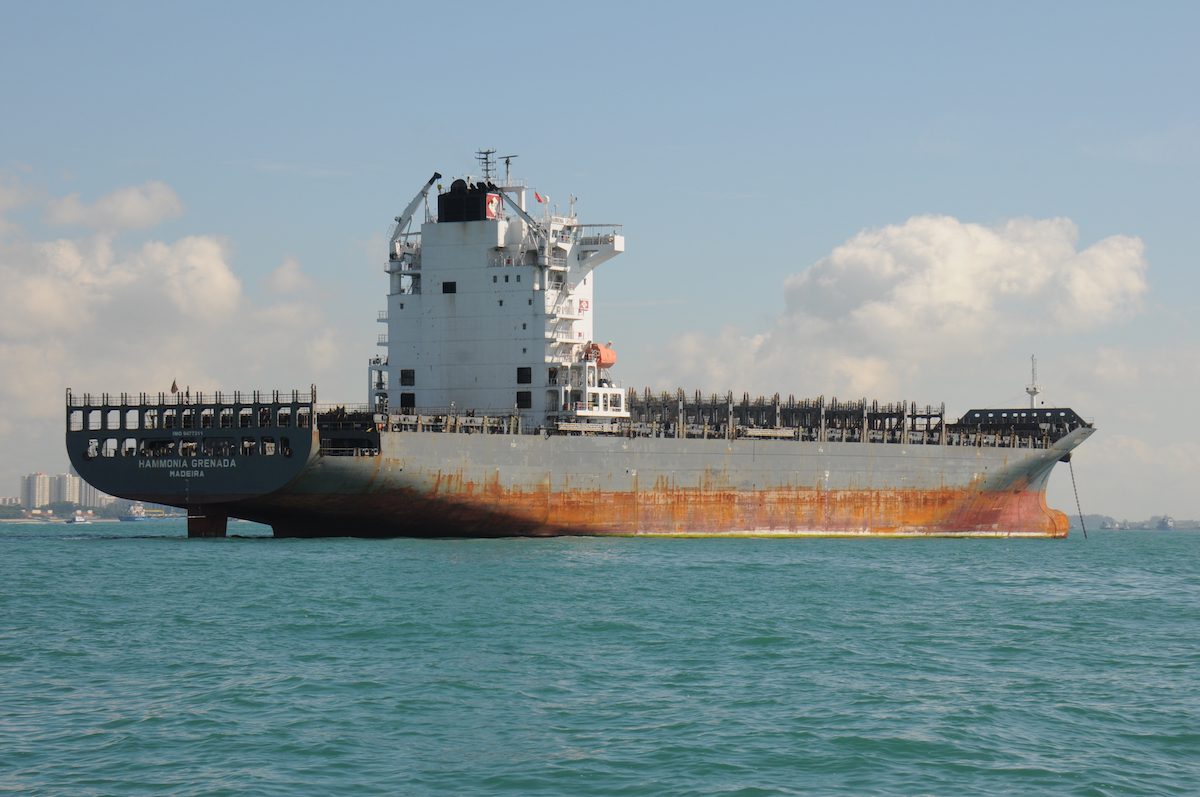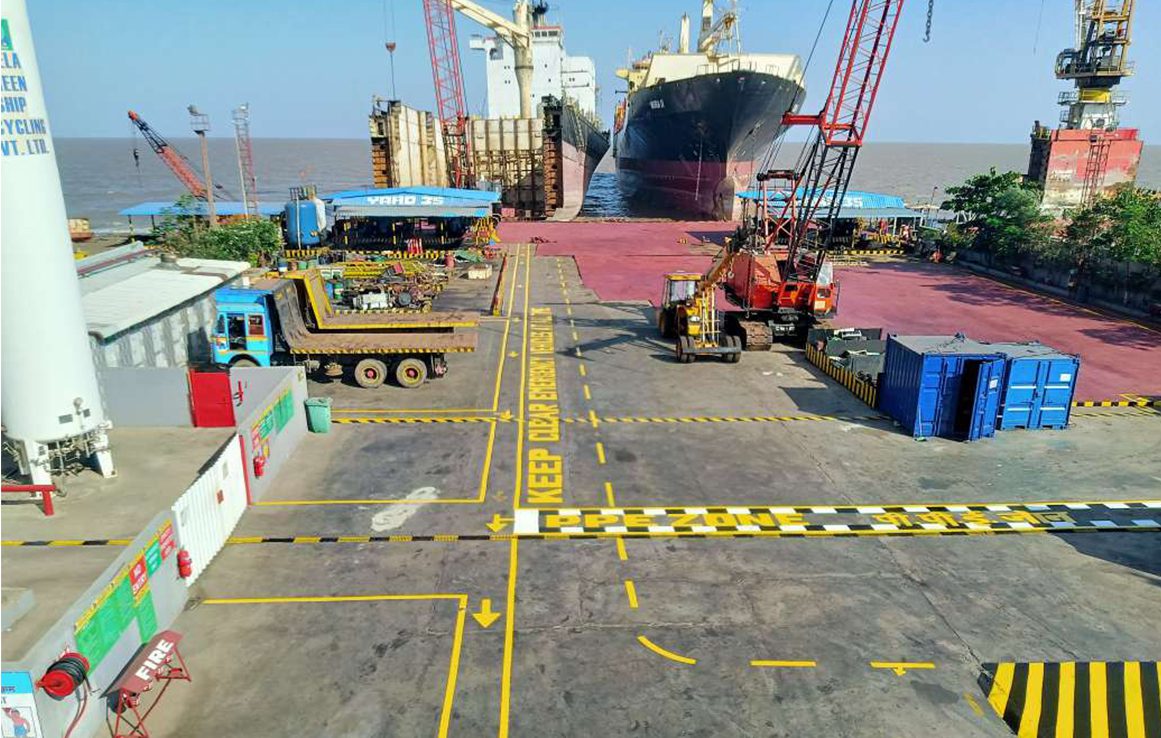Höegh Autoliners and Nordic Circles have partnered to revolutionize ship recycling in Norway, launching a project that will transform decommissioned vessels into certified building materials without traditional melting processes.
The NOK 1.3 billion agreement (US ~$128 million), announced at Nor-Shipping’s Blue Talks stage, covers the upcycling of up to eight Höegh vessels, with the first decommissioning scheduled at AF Offshore Decom’s Vats facility. The initiative promises to reduce carbon emissions by 100,000 tons of CO2 in the construction sector alone.
“We aim to be the greenest in deep-sea shipping and have set a net-zero target by 2040,” states Sebjørn Dahl, COO of Höegh Autoliners. “With this agreement, we ensure sustainability from cradle to grave and lay the foundation for a new green industrial adventure in Norway”.
The project represents a significant shift in European ship recycling practices. Currently, Turkey holds the EU’s only large-scale ship recycling capacity, but this initiative positions Norwegian shipyards as a competitive alternative. Norway’s maritime industry has developed seven EU-approved shipyards capable of decommissioning and upcycling, with AF Offshore Decom at Vats recognized as the world’s most environmentally friendly decommissioning facility.
“This is circular economy at its best – managing to build a sustainable industry from what we used to export as hazardous waste to Asia,” said John Jacobsen, CEO of Nordic Circles and Oppsirk. Nordic Circles is a Norwegian firm specializing in the upcycling of ships and oil rigs into environmentally friendly building products.
The timing is strategic, as the maritime industry faces increased pressure for sustainable solutions. With Norway controlling the fifth largest merchant fleet by value and the EU’s share bringing the total market potential to 45% of the world’s merchant fleet, the project could significantly impact global ship recycling practices.
The initiative has garnered broad support from Norway’s public funding instruments and includes participation from major industry players such as Statsbygg, Oslo and Bergen municipalities, Skanska, Green Yard, Equinor, DNB, and SINTEF.
This innovative approach addresses a critical environmental challenge, as the construction industry currently accounts for 40% of global greenhouse gas emissions, with steel being a major contributor. By establishing a circular value chain for ship steel, the project not only reduces emissions but also creates a new green industry for Norway and Europe.
Editorial Standards · Corrections · About gCaptain

 Join The Club
Join The Club











